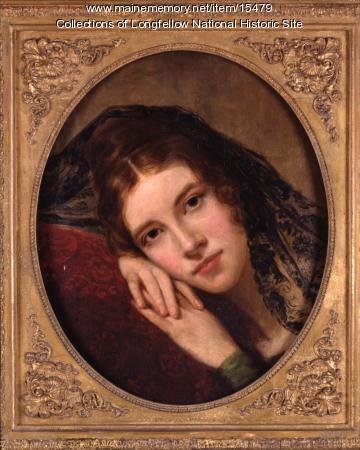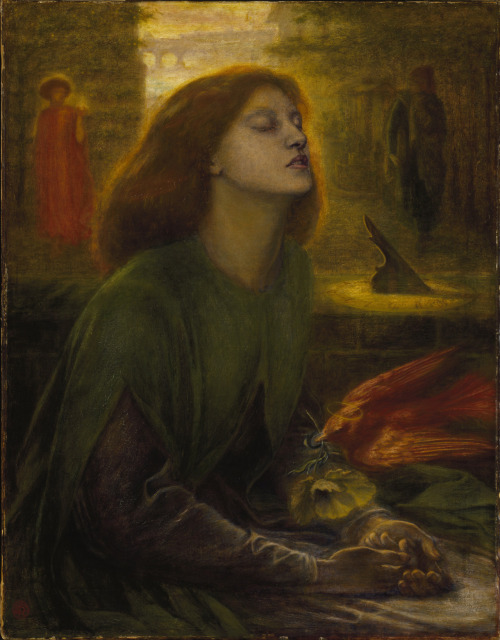
Longfellow proposed to Francis Appleton the first day he met her. She was his muse, whether she liked it or not. Longfellow had to wait through seven years of nos, during which time he published a book about his
unsuccessful attempts in the form of a thinly-veiled travel romance. Hyperion (1839) did not help his cause; Fanny, who was a woman of good taste, had this to say about it:
When she died in 1861, tragically and prematurely as a result of circumstances too awful to relate, Longfellow was destroyed. He coped by translating Dante. He handed himself over to the Italian bard who's love for Beatrice Portinari superseded death; Dante's epic puts the poet as the protagonist, and when he finally makes it through hell, the lovely Beatrice guides him to heaven. It was not until eighteen years later that Longfellow wrote his only poem about the loss of Francis (reproduced below) -- but it is perhaps better to look at all the poetry she inspired in life rather than the single one he could hardly bring himself to write after her death. This poem exists well within the realm of the infandum.
The Cross of Snow

Rossetti's Beata Beatrix (ca. 1864-70)
unsuccessful attempts in the form of a thinly-veiled travel romance. Hyperion (1839) did not help his cause; Fanny, who was a woman of good taste, had this to say about it:
There are really some exquisite things in this book, though it is desultory, objectless, a thing of shreds and patches like the author’s mind... The hero is evidently himself, and... the heroine is wooed (like some persons I know have been) by the reading of German ballads in her unwilling ears.The romance of this story is mind-blowing; every letter, every poem, every anecdote becomes a testimony to the power of love to inspire and transcend. I cannot find in history and literature a more profound story or more pure example of true love.
When she died in 1861, tragically and prematurely as a result of circumstances too awful to relate, Longfellow was destroyed. He coped by translating Dante. He handed himself over to the Italian bard who's love for Beatrice Portinari superseded death; Dante's epic puts the poet as the protagonist, and when he finally makes it through hell, the lovely Beatrice guides him to heaven. It was not until eighteen years later that Longfellow wrote his only poem about the loss of Francis (reproduced below) -- but it is perhaps better to look at all the poetry she inspired in life rather than the single one he could hardly bring himself to write after her death. This poem exists well within the realm of the infandum.
The Cross of Snow
In the long, sleepless watches of the night,
A gentle face — the face of one long dead —
Looks at me from the wall, where round its head
The night-lamp casts a halo of pale light.
Here in this room she died; and soul more white
Never through martyrdom of fire was led
To its repose; nor can in books be read
The legend of a life more benedight.
There is a mountain in the distant West
That, sun-defying, in its deep ravines
Displays a cross of snow upon its side.
Such is the cross I wear upon my breast
These eighteen years, through all the changing scenes
And seasons, changeless since the day she died.

Rossetti's Beata Beatrix (ca. 1864-70)
No comments:
Post a Comment